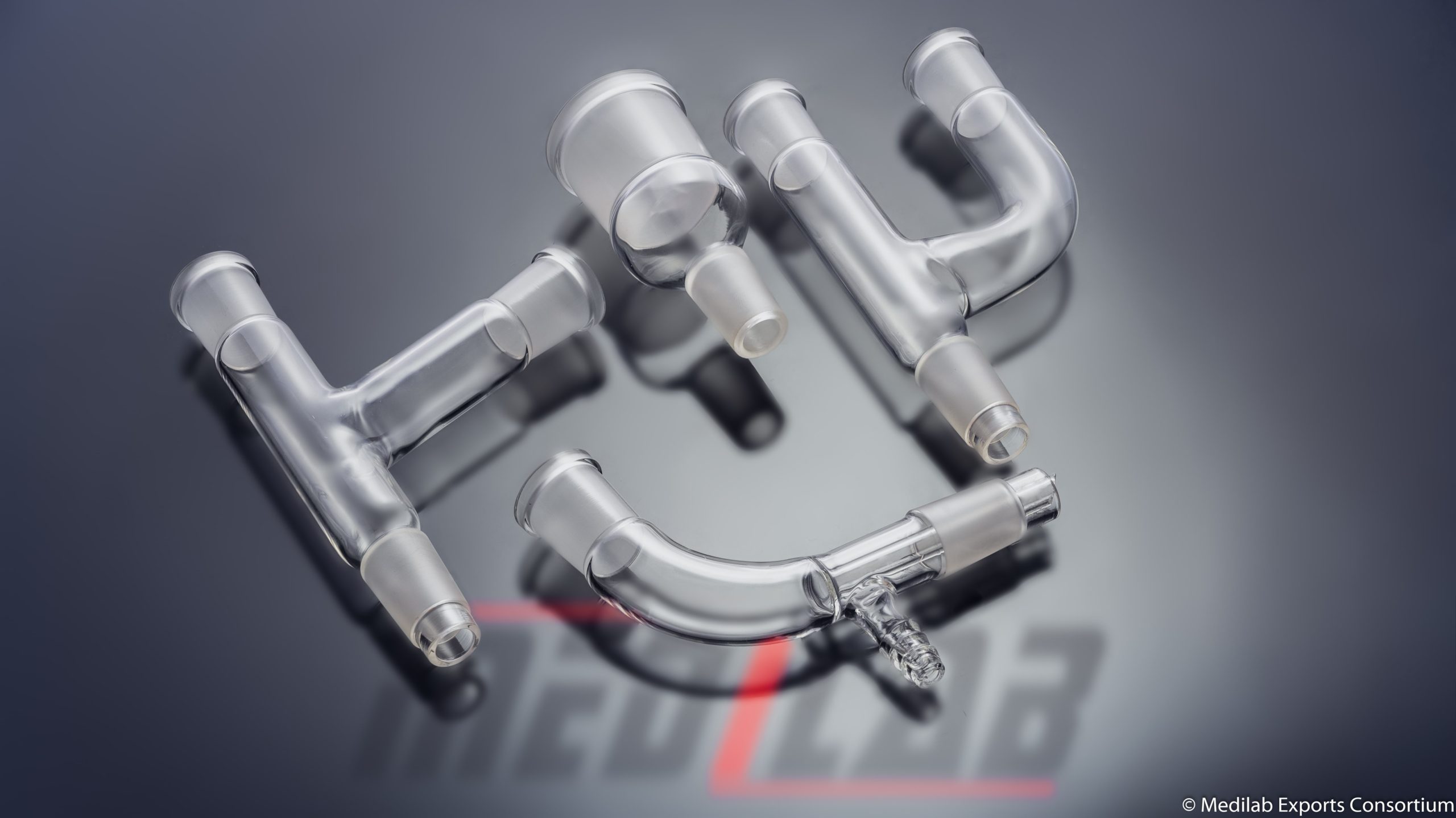Laboratory glass adapters are indispensable components in any lab setup, facilitating seamless connections between glassware of varying sizes and designs. These adapters help in achieving leak-proof joints, enhancing the versatility of lab equipment, and ensuring precise experimental conditions. In this blog, we will explore different types of lab glass adapters, their uses, and why they are essential for laboratory operations.
Types of Lab Glass Adapters-
- Reducing Adapters
- Used to connect glassware with different joint sizes.
- Ideal for adapting large flasks to smaller condensers or columns.
- Expanding Adapters
- Allow smaller glassware to fit into larger jointed equipment.
- Useful when working with various sizes of laboratory apparatus.
- Distillation Adapters
- Designed for connecting multiple pieces in distillation setups.
- Available in multiple angles, including 105° and 75° configurations, for customized distillation pathways.
- Vacuum Adapters
- Equipped with side arms to enable vacuum applications in filtration and distillation.
- Help in controlling pressure and maintaining stability in experiments.
- Hose Barb Adapters
- Feature a barbed end for attaching flexible tubing.
- Commonly used for vacuum or gas transfer applications.
- Claisen Adapters
- Offer multiple inlets for introducing reagents into a reaction vessel.
- Frequently used in complex organic synthesis and reflux setups.
Uses of Lab Glass Adapters-
- Distillation Processes: Essential for connecting condensers, boiling flasks, and receiving flasks to optimize distillation efficiency.
- Vacuum Filtration: Used to attach filtration setups, ensuring a secure vacuum seal for efficient separations.
- Gas Flow Regulation: Facilitate the controlled transfer of gases in various experimental procedures.
- Chemical Reactions: Allow for the introduction of multiple reactants and solvents into reaction vessels safely.
- Scaling Up or Down Experiments: Enable seamless adaptation between different glassware sizes without requiring additional specialized equipment.
- Reflux Setups: Help in continuous heating and cooling of reactions by connecting condensers and reaction vessels.
Why Lab Glass Adapters Are Essential?
- Flexibility: Allow scientists to mix and match different lab glassware efficiently.
- Cost-Effective: Reduce the need for purchasing multiple sizes of the same apparatus.
- Safety & Precision: Ensure secure connections, reducing the risk of leaks and contamination.
- Enhanced Experimentation: Enable more complex setups, such as multi-step reactions and advanced distillation techniques.
Choosing the Right Lab Glass Adapter-
When selecting a lab glass adapter, consider the following:
- Material: Borosilicate glass is preferred for its thermal resistance and durability.
- Joint Size Compatibility: Ensure proper fitment to avoid instability in lab setups.
- Purpose-Specific Design: Choose the right type based on your experimental requirements.
Conclusion:-
Lab glass adapters play a critical role in laboratory operations by providing essential connections between various glassware components. Whether you are conducting distillation, vacuum filtration, or chemical synthesis, having the right adapter enhances efficiency and accuracy. Investing in high-quality adapters ensures long-term usability and safety in your lab.
At MEDILAB, we offer a comprehensive range of premium laboratory glass adapters tailored to meet diverse research and industrial needs. Explore our collection today to find the perfect adapter for your setup!



